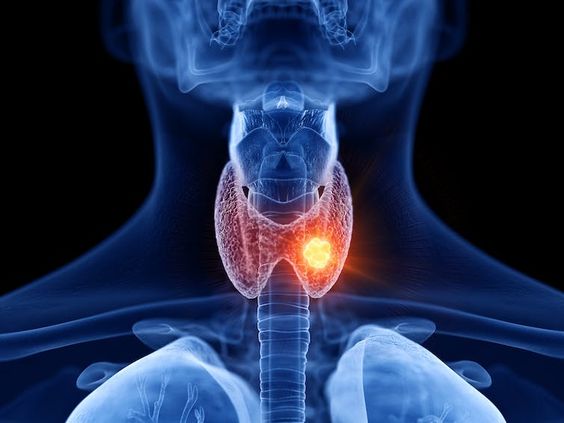Thyroid Nodule (Many non-cancerous nodules can be treated non-surgically)
Thyroid nodules are a prevalent medical condition that involves the formation of abnormal growths or lumps within the thyroid gland, a butterfly-shaped organ located at the base of the neck. While the majority of thyroid nodules are non-cancerous, their presence can still cause concern and necessitate medical attention. In many cases, non-surgical treatments are available, offering patients effective alternatives to invasive procedures.
Understanding Thyroid Nodules
Thyroid nodules can vary in size, and their etiology may be multifactorial. They can be caused by benign cysts, overgrowth of thyroid tissue, or inflammation. Though the exact cause of thyroid nodules remains unclear in many instances, factors such as age, gender, and family history may contribute to their development. Additionally, certain lifestyle factors, such as iodine deficiency, may increase the risk of nodular formation.
Diagnosis and Assessment
The identification of thyroid nodules often begins with a routine physical examination and may be further confirmed through imaging studies such as ultrasound. Fine-needle aspiration (FNA) biopsy is a common diagnostic tool that involves extracting a small tissue sample from the nodule for laboratory analysis. This procedure helps determine whether the nodule is cancerous or benign, guiding subsequent treatment decisions.
Non-Cancerous Nodules: Treatment Approaches
Watchful Waiting and Monitoring:
In cases where thyroid nodules are non-cancerous and do not cause significant symptoms, a conservative approach known as watchful waiting may be recommended. Regular monitoring through imaging studies and periodic check-ups can track any changes in nodule size or characteristics. Many non-cancerous nodules remain stable over time, and intervention may not be necessary.
Thyroid Hormone Replacement Therapy:
For nodules associated with thyroid hormone imbalances, hormone replacement therapy may be prescribed. This approach aims to normalize hormone levels and reduce the size of the nodules. It is particularly effective for nodules caused by conditions such as Hashimoto’s thyroiditis.
Radioactive Iodine Treatment:
Radioactive iodine therapy is another non-surgical option for treating certain thyroid nodules, especially those causing hyperthyroidism. The administration of radioactive iodine helps shrink the nodules by selectively destroying overactive thyroid tissue. This treatment is generally well-tolerated and offers a targeted approach to managing nodular growth.
Ethanol Ablation:
In ethanol ablation, the thyroid nodule is directly injected with ethanol (alcohol). This induces cellular destruction and reduces the size of the nodule. While this approach is not suitable for all types of nodules, it has shown promise in the treatment of cystic or predominantly cystic nodules.
Thyroid nodules, while often benign, require careful evaluation and monitoring to ensure the appropriate course of action. Non-surgical treatments provide viable alternatives for individuals with non-cancerous nodules, offering effective management without the need for invasive procedures. As our understanding of thyroid nodules continues to evolve, personalized treatment plans tailored to the specific characteristics of each nodule contribute to improved outcomes and enhanced patient well-being. Regular communication between patients and healthcare providers is crucial for making informed decisions and optimizing the management of thyroid nodules.
For further queries, please visit https://drtanejathyroidclinic.com/


